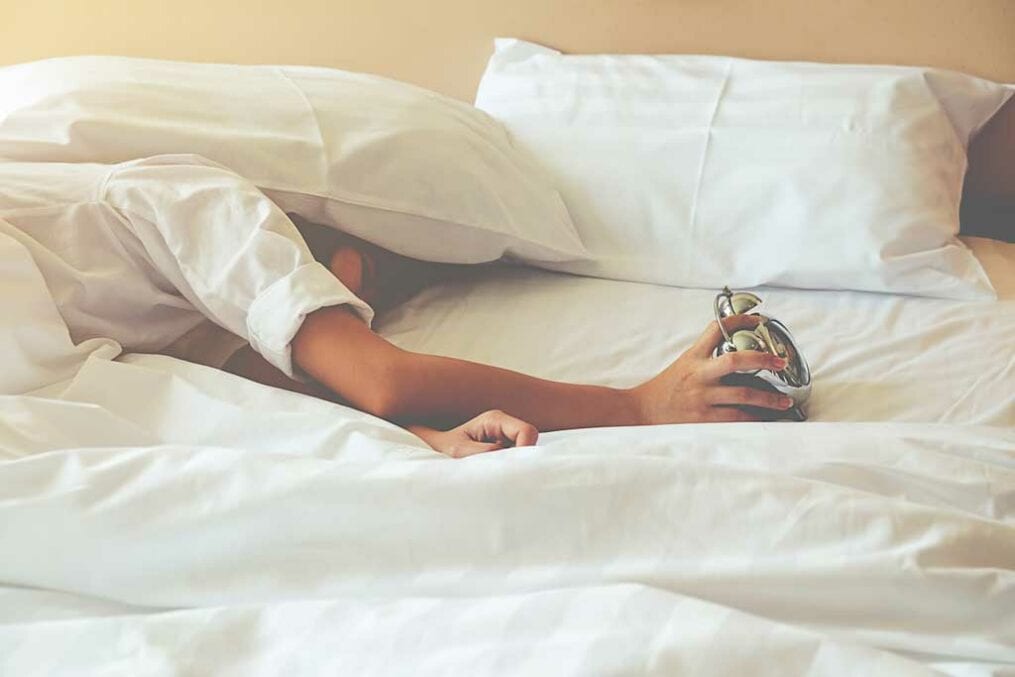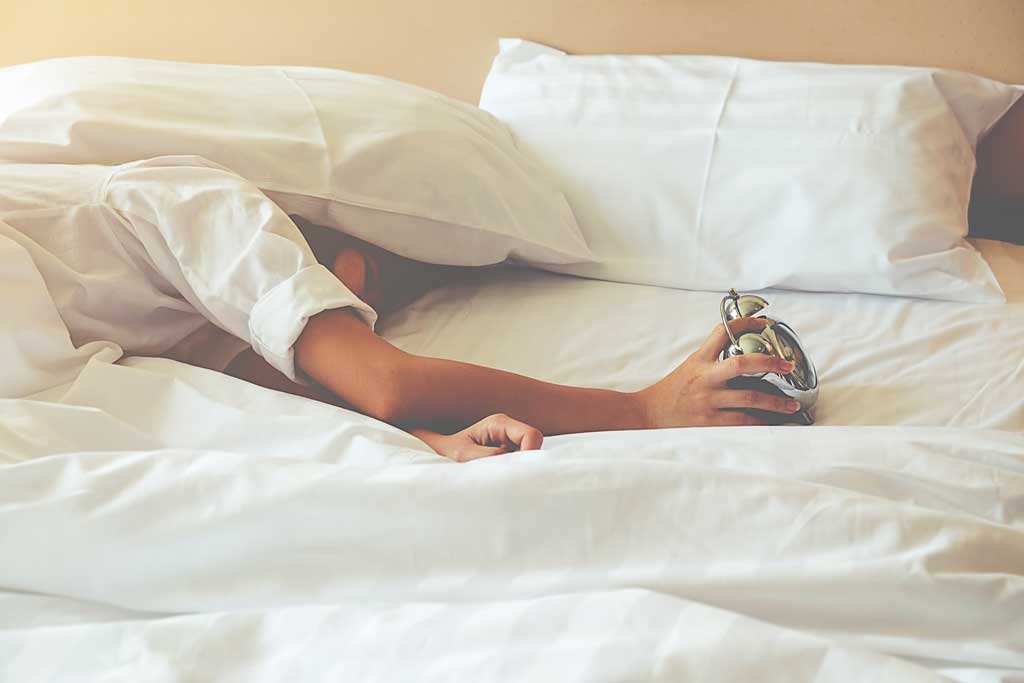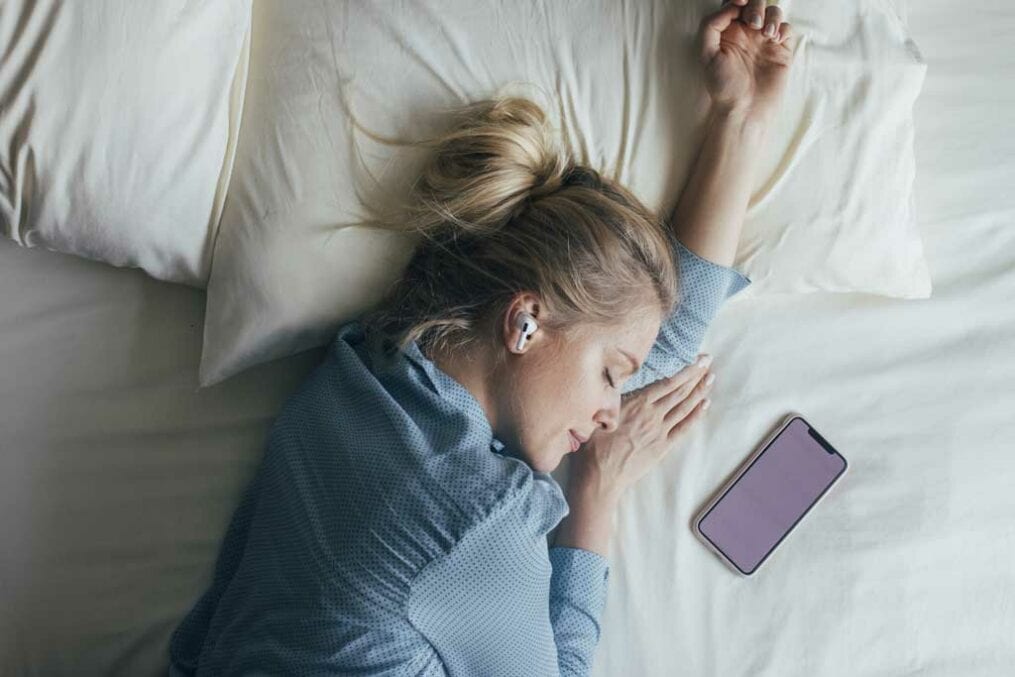How you’re sabotaging your sleep

The problem with insomnia is that we’re always looking for the trigger. We’ll pin it to just about anything: a chemical imbalance, hormones, a recent divorce, recovering from major surgery, illness – the list goes on. And while these are valid reasons for a few nights’ disturbed sleep, they should not still be affecting us months later.
When you look at the progression of insomnia, you start by looking at the initial trauma or illness that marked the starting point. Then you look at the same person, 20 years down the line, and they still have insomnia. We have to ask ourselves: what happened to perpetuate this problem? It’s normal to have sleep problems after something terrible has happened, but it isn’t normal for them to be carrying on after a month – so why is that happening with a third of the population?
Alarm bells
The Mental Health Foundation’s 2011 sleep survey found that 36% of respondents were classified as possibly having chronic insomnia (estimates tend to hover around 30% of adults). Of those who had insomnia, 79% reported having had it for at least two years. This is very concerning.
The short-term effects of sleep deprivation include poor concentration, changes in mood and lack of motivation and energy. Prolonged lack of sleep can disrupt the immune system (so we’re less able to fend off bugs), cause weight gain, lower libido, decrease fertility, lead to long-term mood disorders such as depression and anxiety and increase the risk of diabetes and heart disease.
We leave ourselves open to these issues in how we react to insomnia. We respond to the trigger, which changes our behaviour, and this causes the insomnia to continue. And we do this because we’re terrified. We read in the media that sleep deprivation is really bad for you, so we start researching how we can ‘cure’ it.
We might start weird routines before we go to bed – like having warm baths – and change the timing of our sleep, believing we need to get to bed earlier because we’re not sleeping enough. We might become obsessed with finding some niche solution, like how we think we need more melatonin or a sleeping pill. None of these things can cure insomnia. They might help with sleep deprivation, but insomnia and sleep deprivation are two separate things and it’s important to understand the difference.
Difference in the detail
Sleep deprivation is where you’re actively restricting yourself from sleeping. So that’s somebody who would rather stay awake than be asleep even when they feel really sleepy. By contrast, if you ask an insomniac if they’re ever sleepy, they’ll say no. They’re always wired and they would do anything to get that sleep but can’t achieve it.
While insomnia is generally defined as not being able to sleep, if you research an insomniac, you’ll find that they are in fact sleeping. The sleep they’re getting is of very poor quality and the timing is all over the place – but it certainly isn’t the same as chronic sleep deprivation.
Chronic sleep deprivation gives you the ability to fall asleep on the floor at any given moment, you’re that tired. It also will make you very sick, very quickly; if you had chronic sleep deprivation for more than a few weeks, you’d be dead. Thus we know that most people who suffer from sleep problems can’t possibly have chronic sleep deprivation in the way that it’s sometimes described in the media. But it’s this confusion that causes problems.
If you have a fear of chronic sleep deprivation and you’re already not sleeping well because of insomnia, what are you going to do? The obvious answer for many is to go to bed earlier. So you’re increasing the amount of time you spend in bed, but you’re not sleeping for all of that time. This confuses your body. Then, if you start taking advantage of any surge in sleepiness – for example, by taking a lie-in or afternoon nap – you’re telling your brain that sleep is no longer restricted to a certain window in your daily routine. Your body becomes completely disjointed, you become confused as to why the issue is getting worse, and it’s actually down to your own behaviour.
From there, we allow insomnia to dictate our lives. We wake up feeling rubbish so we stop exercising and going our with our mates, and we think we can’t deal with anything but work. Suddenly you’ve adapted your entire lifestyle to insomnia. But what does that adaptation mean? It means you’re no longer doing any exercise, you’re not eating well and you’re not socialising, so you’re not having good quality wake time – and then you’re taking yourself to bed early. And even though you’re miserable, your brain thinks you’re fine because you’ve adapted in order to cope.
Hold the chill pill
People think relaxation is the key to sleep, but there’s no evidence for this at all. Again, it comes down to the trigger. Most people develop insomnia because they’re overworked and overstressed, so think they’ve got to relax to cure it. So they declutter and de-stress, but they haven’t worked on their sleep at all. They’ve got no sleep drive, so they end up lying there wondering why these techniques aren’t working.
That method simply won’t work because there are behavioural techniques you need to conquer first (see my tips, below). Then, when you’re feeling better and can actually sleep, you can start to look at incorporating relaxation into your life to ensure you never end up in that situation again.
Fixing sleep can be difficult because it requires consistency before you see results. If you feel you need further support with this process, or you have tried the tips below and are still struggling, seek help. It’s worth discussing with your GP whether there are sleep specialists in your area who can help you cure your insomnia.
How to cure insomnia
This treatment is called cognitive behavioural therapy (CBT) for insomnia. It’s evidence-based, very effective and the only long-term cure.
1 Deprive
Stay awake for longer. You’ve got to give yourself a bit of sleep deprivation in order to cure insomnia. If you build up a sleep drive, you can get rid of it. That’s a surefire thing. Get up at the same time every day, don’t nap, don’t go to bed until you’re sleepy-tired and, if you wake up or can’t sleep, go and enjoy yourself somewhere else.
2 Re-learn
The hard part is trying not to worry. If you believe that if you don’t sleep all these terrible things will happen, and you’ve been told to go to bed at the same time every night, that will alter your behaviour. Forget all that – that advice isn’t helpful for insomniacs. Sleep therapy can help you change these beliefs.
3 Power through
Unfortunately, you’ll feel terrible to begin with. It’s a big shake-up for your body. It’s like weight loss – everybody knows how to do it, but how many actually stick to it? The point of people like me is to support someone on that journey. And, remember, feeling rough is actually a good thing; your brain needs to understand you have a problem in order to fix it.
Stephanie Romiszewski has worked in NHS clinical sleep disorder centres across the UK and assisted sleep research at Harvard Medical School. She holds a BSc Hons degree in psychology and an MSc degree in behavioural sleep medicine. For more information on what insomnia is, the most evidence-based treatments and Stephanie’s practice, visit sleepyheadclinic.co.uk








